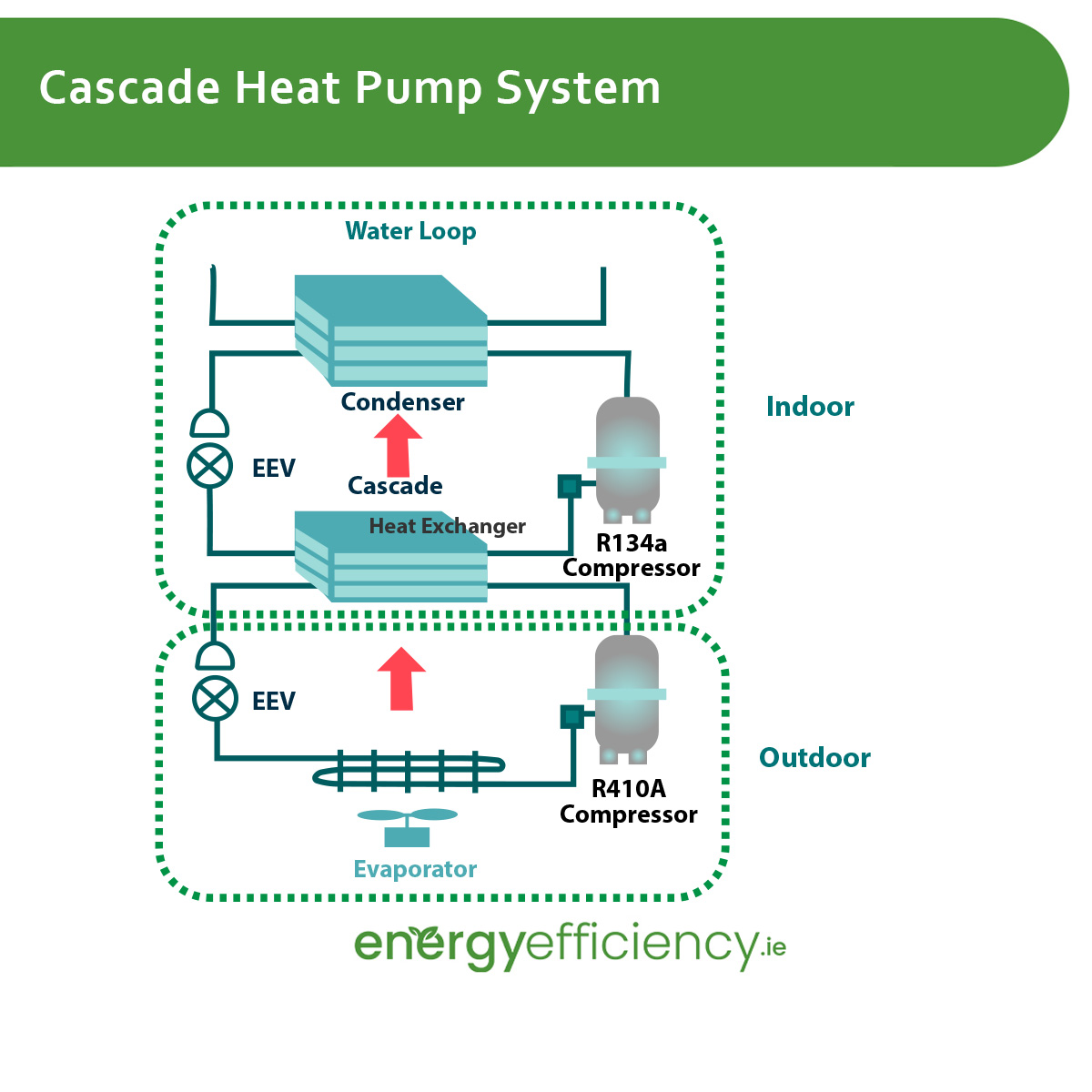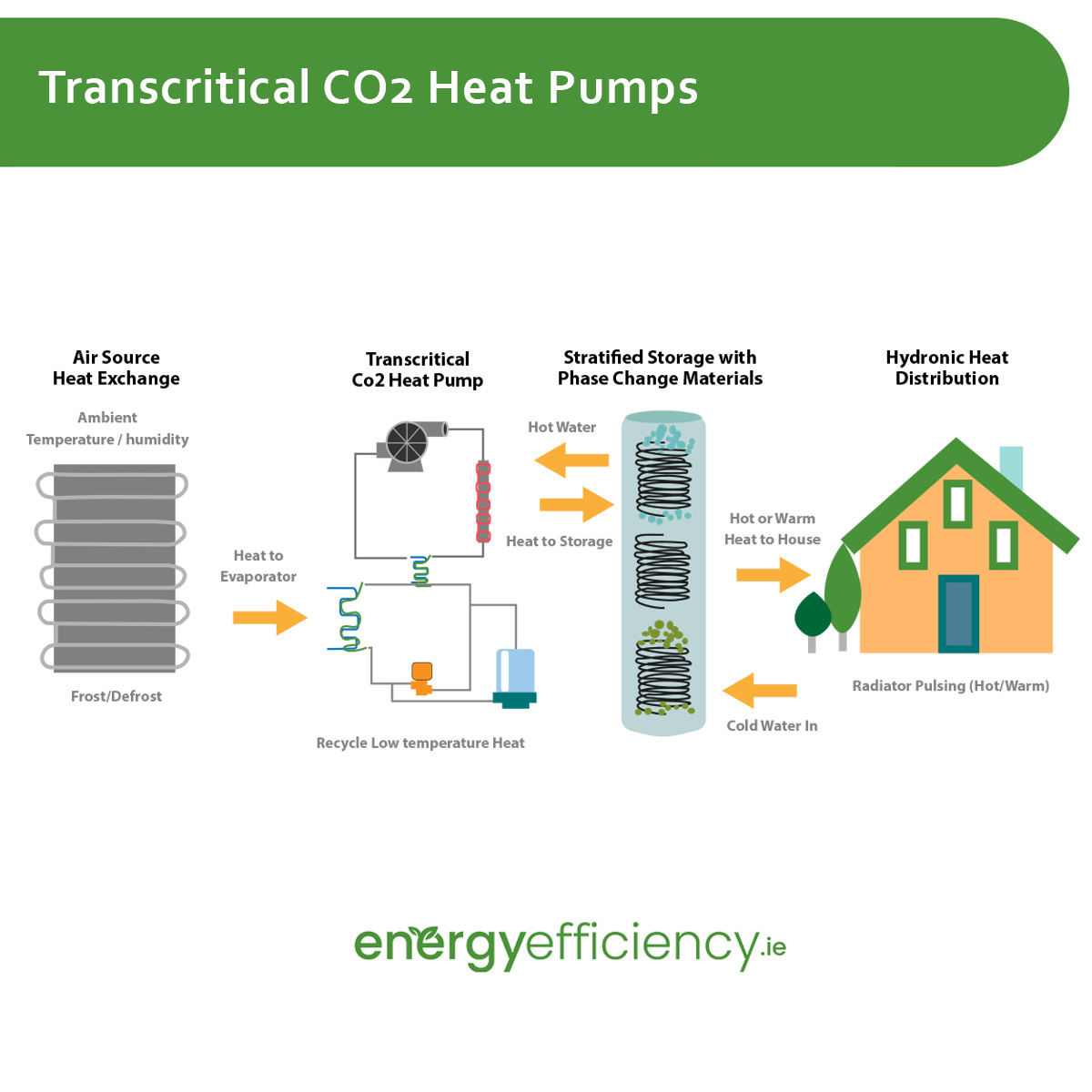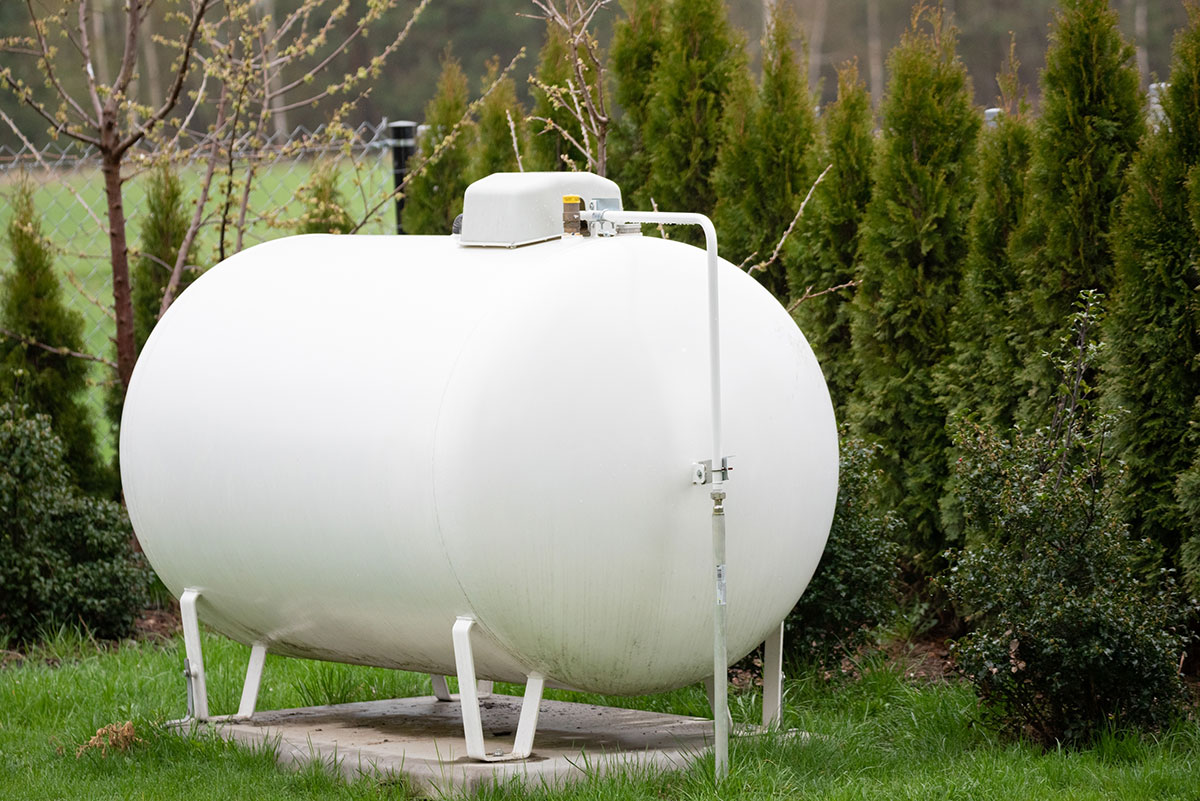One of the issues which is often raised when talking about heat pumps is the low flow temperature of water it produces in comparison with a boiler.
Conventional heat pumps typically operate with a water flow temperature of 35-50℃. The lower the flow temperature, the more efficient the heat pump becomes. As efficiency is one of the big selling points for a heat pump, that means there is an incentive to keep the temperature as low as possible.
This is in comparison to a boiler, which will generally produce water with a flow temperature of 60-80℃.
Retrofitting Ireland’s housing stock with heat pumps is a major part of the government’s plan to reduce emissions. However, that can often involve a lot of work on making a home more energy efficient before it is even suitable for a heat pump.
High temperature heat pumps have emerged as an option for homes that can more easily replace a boiler, as well as for commercial premises with greater heating demands.
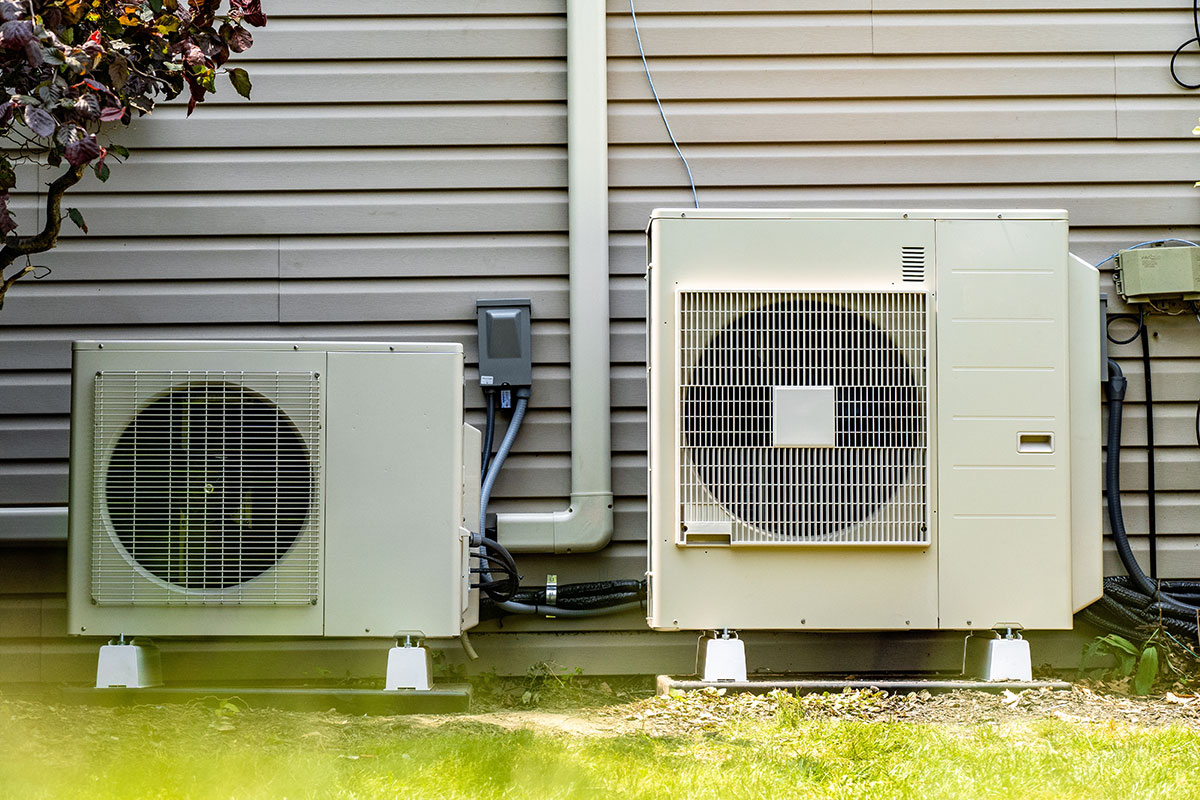
The key takeaways:
Table of Content
What is a High Temperature Heat Pump
This is a general term given to a number of different systems and technology types which are meant to produce water temperatures far greater than the majority of heat pumps used in residential properties.
A high temperature heat pump should have a hot water temperature output which matches or exceeds what can be produced by an oil or gas boiler.
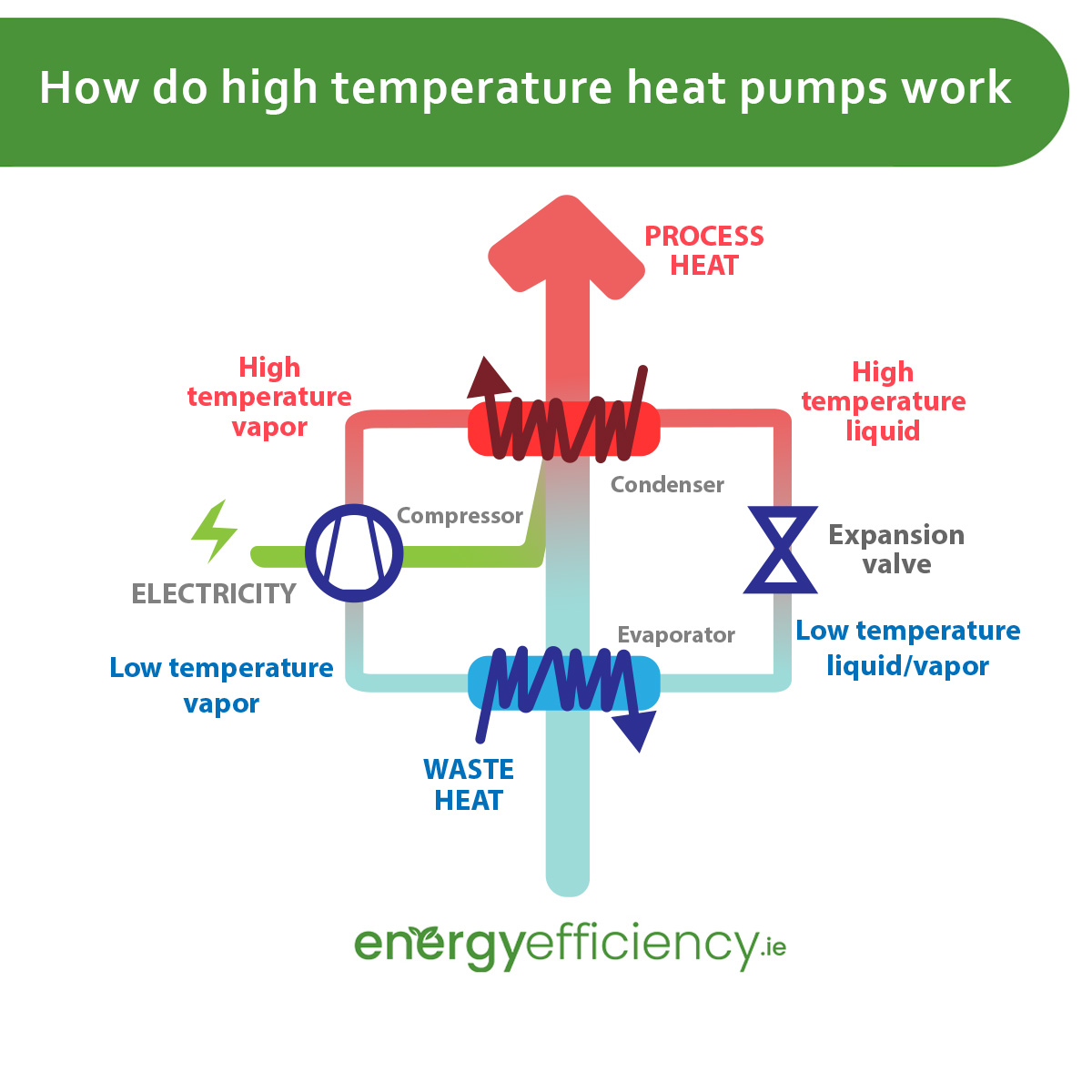
Benefits of High Temperature Heat Pump
Producing hot water up to 80℃ means that a high temperature heat pump can more easily replace a gas or oil boiler, without requiring any upgrades to the fabric of a building or its heating systems.
A conventional heat pump, working at 35-50℃ requires a well insulated house and properly sized radiators or underfloor heating systems.
Without this too much heat is lost through the fabric of the building, and the heating system doesn’t have the required surface area to deliver enough heat.
There are multiple reasons why it might be impossible or impractical to make home improvements which would allow a regular heat pump to be installed.
If a building is a protected structure, or located in an architectural conservation area, it could be impossible or cost-prohibitive to install new insulation, replace the existing radiators, or install underfloor heating.
Even if there are no legal hurdles, it might simply be cheaper to replace an old boiler with a modern high-temperature heat pump.
Meeting Hot Water Demands
For larger homes with a high demand for hot water a specialised high-temperature heat pump might be better suited to your needs than a larger conventional heat pump.
| Benefits and Drawbacks of a High Temperature Heat Pump | |
| Pros | Cons |
| Can easily replace an existing boiler | Often more expensive than regular heat pumps |
| Doesn’t require upgrading of radiators | Can be more expensive than a boiler to run |
| Produces hotter water for use in your home. | More complex systems may require greater maintenance |
| Can provide both hot water and space heating even without a hot water cylinder. | Bulkier than regular heat pumps |
Types of High Temperature Heat Pumps
There are multiple ways in which a heat pump system can achieve high temperature outputs by making use of different refrigerants and system setups.
The older method of creating high water temperatures is with a cascade system, where to low and high heat refrigeration cycles are used to push the heat level higher than a regular heat pump can.
The other most prominent depends on making use of refrigerants which can be compressed to a level which will bring them to extremely high temperatures. Natural refrigerants such as propane (R-290) and carbon dioxide (R-744) .
FAQs
Speak with Energy Efficiency today about a high temperature heat pump
Make an enquiry today about a high temperature heat pump, and a member of the Energy Efficiency team will be in touch to discuss your inquiry.
Energy Efficiency are Ireland’s leading source of heat pump information online. Speak to us today to learn more.


